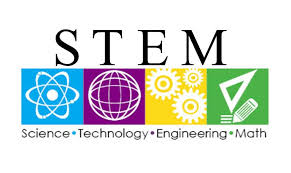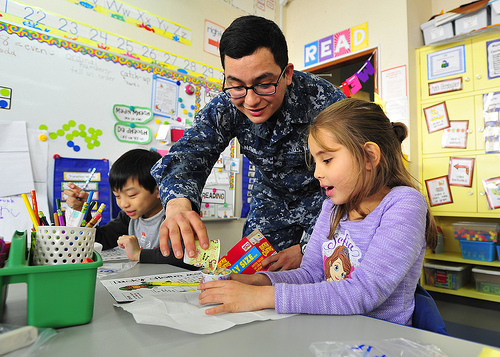The Vicious Cycle of (un)Education in Pakistan
**The Edvocate is pleased to publish guest posts as way to fuel important conversations surrounding a P-20 education in America. The opinions contained within guest posts are those of the authors and do not necessarily reflect the official opinion of The Edvocate or Dr. Matthew Lynch.**
By Khaula Mazhar
In Pakistan there are basically three levels of schools. The top ranking schools, the middle ranking schools and the lowest ranking schools. Unfortunately the ranking has more to do with how much the Pakistani parent can actually spend on education rather than academic results. In Pakistan education is a privilege, not a right.
The sad fact is the top ranking schools are extremely expensive private schools owned by business savvy entrepreneurs whose main interest is to keep up their personal prestige as well as finance their round the world trips. That being said however, these private schools are mainly O-Level Schools in urban and suburban areas. They have to adhere to certain standards, if they wish to remain affiliated with the Cambridge system, resulting in a higher standard of academics. O-Level schools charge the highest fees, so remaining in the Cambridge system has a huge monetary attraction. The students are encouraged and supported to maintain their grades and in most cases the teachers are well-trained, dedicated individuals. At least that is how the school starts its journey.
The problem arises when the school attains an impressive reputation for academic excellence among its competitors. As with the rise of empires there is always the inevitable fall, it is true for private schools as well. The growing waiting lists for admissions into top schools are inversely proportional to the academic standard in most cases, especially where there is sole ownership rather than a board of directors. The culprit is greed, misuse of authority and the loss of dedication to working for the coming generations.
To keep up with the demand to give more admissions to more students, the private school owner must supply more buildings and more staff. This should be a simple enough task however the reality of the expenditure can be daunting especially when it infringes upon the comfort of the school’s owner. Expenses must be cut elsewhere. Unfortunately it is the staff and students that ultimately pay. To meet the expenses current staff must forgo the yearly salary increment, mediocre teachers lacking proper training are hired on minimum salaries and fees are hiked a good percentage on a yearly basis. Not to mention the one-time admission fee (costs and arm and leg for the average upper middle class working father). It only takes a year for the standard to slip, and since the students are required to maintain a certain level of grades so as not to tarnish the school’s results. Parents have no choice but to pay for tutors or look for another school if their child is removed, in which case they would have to pay admission fees to any school willing to give an admission.
The reality of this situation is clearer when we see the average salary of teachers as compared to the monthly school fees. In one top ranking school (now on a steady decline) the average monthly fees for one child in Pre-nursery to grade two is around RS 16 000 ($157) and reaches up to RS 20 000 for higher grades. The average Pakistani family has at least three children. Sending them to school is no easy feat.
The average teacher’s monthly salary ranges from RS 13 000 to RS 20 000 only ($127-$197). So for teaching to a class of at least thirty, the teacher is paid the equivalent or less than the fees of one single student. Teachers quit on a regular basis burdened by the work load and the pathetic salaries. The teachers that do stay on don’t exactly have the incentive to give it their best. In the end parents end up paying dearly for school fees plus tuition fees in the hope of providing their child with a proper education. And they are the lucky ones.
The average middle class family can’t afford a top ranking school and has to settle for the neighborhood private schools, which follow the Matric system. The lower fee structure although more reasonable, is still quite an expense with monthly fees ranging around RS 5000 and up per child and the average salary being RS 50 000. If there are three children, that comes to RS 15 000 at least. That is 30 % of the total household income.
The teacher’s qualifications range from Intermediate (what would be grade 14) to Bachelors, mostly with no teacher’s training at all. The training is done on the job. Students come home from school and then study with tutors, usually of equally mediocre capabilities. Getting an admission into any post secondary school of worth is a large improbability for most of these children. And so the cycle continues when they go out to get jobs. Unless one has a degree from a well-reputed academia one must settle for a second-rate job.
The lowest ranking schools are the government schools. The government spends an embarrassing 2% of the budget on education. Due to the insignificant funding there is a lack of motivation among the under-qualified teachers, who are regularly transferred on the basis of prejudice and nepotism. The lack of teaching staff causes an overload of work on the remaining teachers. All this results in a poor and sometimes even hostile environment which encourages students to bunk.
Children who do attend are faced with sitting in dilapidated classrooms, sometimes without electricity or even desks. The majority of the children won’t ever complete their schooling, will end up working less than minimum wage jobs then try to raise a family on that. And so the vicious cycle continues.
—
Khaula Mazhar, children’s book author, has a ten year teaching experience from Pakistan where she also wrote for Dawn Newspaper. After moving back home to Canada she continues to pursue her writing when she can. She blogs at Blog Her, createmyapp.com and MuslimMoms.ca and writes articles for Examiner.com.





